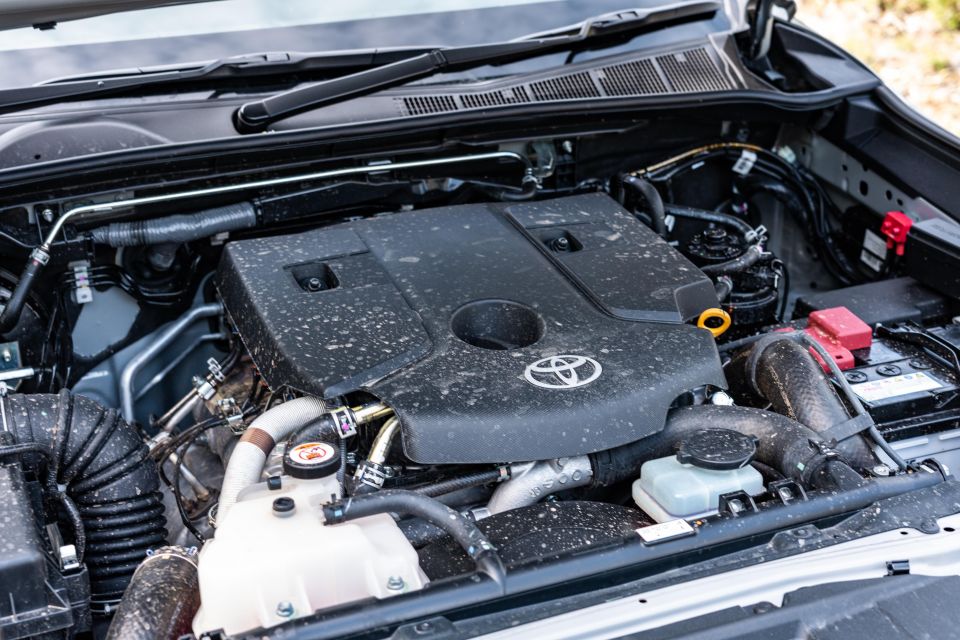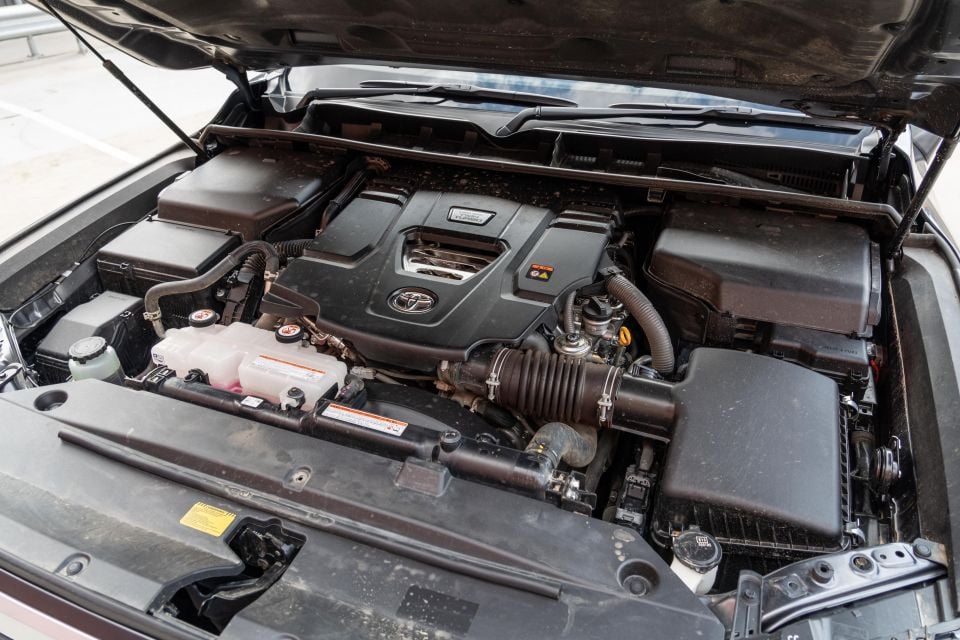

Ben Zachariah
2026 KGM Musso EV review
40 Minutes Ago
Toyota has suspended deliveries of its most popular turbo-diesel models overseas, leaving a question mark over Australian wait times.

Contributor


Contributor
An internal investigation by Japanese car giant Toyota has found certain “irregularities” with the engines fitted to some of its best-selling diesel-powered vehicles, such as the HiLux, LandCruiser Prado and the LandCruiser 300 Series.
In a media statement posted to its global website, Toyota announced it had performed a special investigation into “potential irregularities of certification regulations” within its engine range.
The investigation – which was performed by Toyota Industries Corporation (TICO) on behalf of the Toyota Motor Corporation – found three turbo-diesel engines had irregularities during horsepower output testing.

The three affected engines are the ‘1GD-FTV’ 2.8-litre four-cylinder turbo-diesel, the ‘2GD-FTV’ 2.4-litre four-cylinder turbo-diesel and the ‘F33A-FTV’ 3.3-litre V6 turbo-diesel.
In Australia, the 1GD is found in the current Toyota HiLux ute, the facelifted 70 Series LandCruiser, the outgoing 150 Series LandCruiser Prado SUV, the Fortuner SUV, the HiAce van and Granvia people mover.
Locally the 2GD only powers certain Toyota HiLux Workmate variants, while the F33A is exclusive to the LandCruiser 300 Series and the Lexus LX500d large SUVs.
However, the irregularities were only found when Toyota used engine control units (ECUs) “with software that differed from that used for mass production so that results could measure to make values appear smoother with less variation”.

Despite Toyota claiming its mass-produced engines met its performance output standards, TICO has suspended shipments of the affected engines and vehicles equipped with them.
A spokesperson for Toyota Australia said it doesn’t yet know what impact the suspension of engine and vehicle shipments will have on locally delivered models.
“We are seeking information on any impact to vehicles in the Australian market,” the spokesperson said.
“We have been informed that there is no variation in the power, torque or other powertrain-related values and in addition there is no compromise to the emissions, safety or driveability of the vehicles.
“We will keep our customers and dealers updated as more information is confirmed. We apologise for any inconvenience that they may experience.”

The delivery suspension due to engine irregularities comes just one month after Toyota’s small-car subsidiary Daihatsu suspended manufacturing in Japan following the discovery that it falsified safety data and unauthorised safety testing procedures, dating back to 1989.
“We recognize the gravity of the fact that the repeated certification irregularities at TICO, following those at Daihatsu, have shaken the very foundations of the company as an automobile manufacturer,” Toyota said in its media statement today.
While the latest “irregularities” identified by Toyota haven’t been confirmed to affect emissions, in October 2022, a class action was filed against Toyota in Victoria’s Supreme Court, alleging the car giant had fitted diesel emissions defeat devices in the aforementioned 1GD, 2GD and F33A engines.
The class action also includes the ‘1VD’ 4.5-litre V8 which powers the Toyota LandCruiser 70 Series and the RAV4’s 2.2 litre 2AD-FHV or 2AD-FTV 2.2-litre four-cylinder engines.
The class action against Toyota is yet to be finalised.
MORE: Everything Toyota
Born and raised in Canberra, Jordan has worked as a full-time automotive journalist since 2021, being one of the most-published automotive news writers in Australia before joining CarExpert in 2024.


Ben Zachariah
40 Minutes Ago


James Wong
41 Minutes Ago


James Wong
41 Minutes Ago


James Wong
41 Minutes Ago


Damion Smy
7 Hours Ago


William Stopford
8 Hours Ago
Add CarExpert as a Preferred Source on Google so your search results prioritise writing by actual experts, not AI.